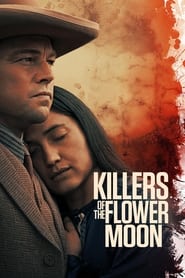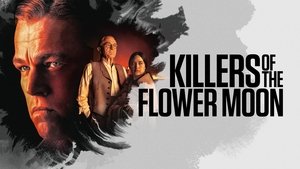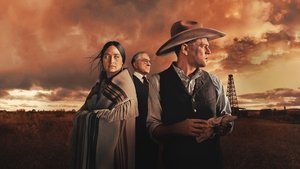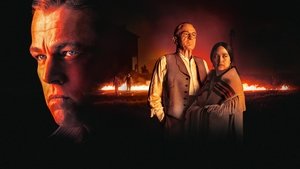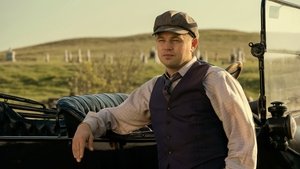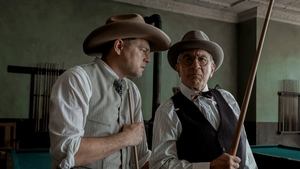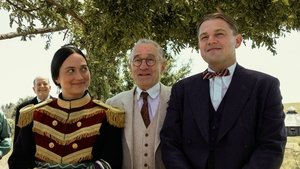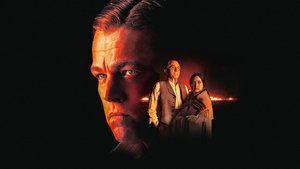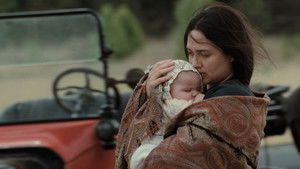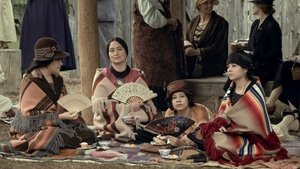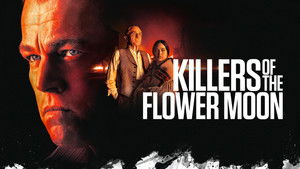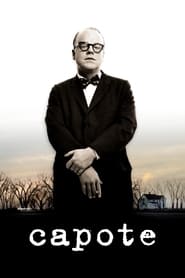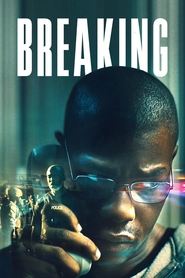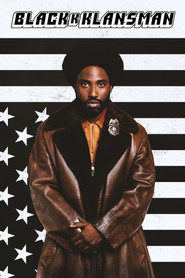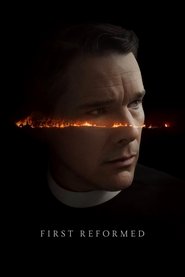Nobody tackles the True Crime genre better than one of Hollywood’s most accomplished filmmakers, Martin Scorsese. Boasting a catalog featuring classic titles like GoodFellas and Casino, coupled with other strong, more recent efforts like The Wolf of Wall Street and The Irishman, Scorsese has mastered the artform of transforming reality into superb big-screen cinema.
This time around, Scorsese tackles a forgotten, albeit heinous, story of early American Greed with Killers of the Flower Moon. The film opens early in the 20th Century, where the Osage tribe becomes the richest people in the world per capita after discovering oil all throughout their land. And as years of wealth begins to trickle down their generational bloodlines, an influx of marriages between young Osage women and white men take place. Yet, things grow more suspicious when dozens from the Osage Nation are murdered in the 1920s, prompting tribal members to flock to Washington, D.C. and demand that the government embark on their first major homicide investigation, leading to the formation of the FBI as we know it today.

Flower Moon uses every second of its always-compelling three-and-a-half-hour runtime to tell Scorsese’s meticulously crafted and detailed account of Mollie Burkhart (played by Lily Gladstone), a member of the Osage Nation whose immediate family experiences tragedy after tragedy following her marriage to a World War I veteran named Ernest Burkhart (Leonardo DiCaprio). Once her chauffer, Ernest begins his quest to court Mollie after his uncle, the local political boss Willam Hale (Robert De Niro), reminds his nephew of her large, impending inheritance.
Scorsese’s latest serves as a showcase for its performers, but it’s Robert De Niro who gives the most impressive turn. It’s easily his finest showing of the 21st century, as De Niro offers a masterclass portrayal of a criminal architect. It’s a skin crawling performance that captures the deceitful and wicked nature of his character with a devilish calm. He’s downright diabolical. And as for the film’s leading stars, Leo is just fine (as he always is), but there’s a somber sacredness to Lily Gladstone’s onscreen work. Prepare yourself for the Oscar storylines as Gladstone could very well find herself as the first Native American Nominee to ever win an Academy Award.

Flower Moon’s inflated running time is sure to be a deterrent for certain viewers, but the film also carries another surprising flaw. The movie lacks those big, all-time classic scenes that live on forever. Essentially, Flower Moon is an effort that’s somehow greater than the sum of its parts. While this is often a compliment, here such a description stands as a disappointing realization that Scorsese’s latest achievement lacks any truly unforgettable cinematic moments. But still, more than half-a-century into his illustrious career, Martin Scorsese continues to churn our high-quality work and Killers of the Flower Moon is no exception.
-
 NameLeonardo DiCaprioCharacterErnest Burkhart
NameLeonardo DiCaprioCharacterErnest Burkhart -
 NameRobert De NiroCharacterWilliam Hale
NameRobert De NiroCharacterWilliam Hale -
 NameLily GladstoneCharacterMollie Burkhart
NameLily GladstoneCharacterMollie Burkhart -
 NameJesse PlemonsCharacterTom White
NameJesse PlemonsCharacterTom White -
 NameTantoo CardinalCharacterLizzie Q
NameTantoo CardinalCharacterLizzie Q -
 NameJohn LithgowCharacterProsecutor Peter Leaward
NameJohn LithgowCharacterProsecutor Peter Leaward -
 NameBrendan FraserCharacterW.S. Hamilton
NameBrendan FraserCharacterW.S. Hamilton -
 NameCara Jade MyersCharacterAnna
NameCara Jade MyersCharacterAnna -
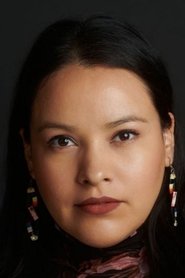 NameJaNae CollinsCharacterReta
NameJaNae CollinsCharacterReta -
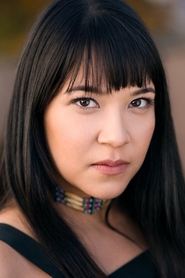 NameJillian DionCharacterMinnie
NameJillian DionCharacterMinnie -
 NameJason IsbellCharacterBill Smith
NameJason IsbellCharacterBill Smith -
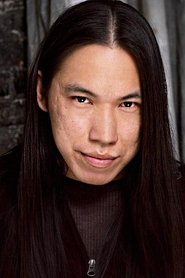 NameWilliam BelleauCharacterHenry Roan
NameWilliam BelleauCharacterHenry Roan -
 NameLouis CancelmiCharacterKelsie Morrison
NameLouis CancelmiCharacterKelsie Morrison -
 NameScott ShepherdCharacterByron Burkhart
NameScott ShepherdCharacterByron Burkhart -
 NameEverett WallerCharacterPaul Red Eagle
NameEverett WallerCharacterPaul Red Eagle -
 NameTahlee RedcornCharacterNon-Hon-Zhin-Ga / Traditional Leader
NameTahlee RedcornCharacterNon-Hon-Zhin-Ga / Traditional Leader -
 NameYancey Red CornCharacterChief Bonnicastle
NameYancey Red CornCharacterChief Bonnicastle -
 NameTatanka MeansCharacterJohn Wren
NameTatanka MeansCharacterJohn Wren -
 NameTommy SchultzCharacterBlackie Thompson
NameTommy SchultzCharacterBlackie Thompson -
 NameSturgill SimpsonCharacterHenry Grammer
NameSturgill SimpsonCharacterHenry Grammer -
 NameTy MitchellCharacterJohn Ramsey
NameTy MitchellCharacterJohn Ramsey -
 NameGary BasarabaCharacterDetective Burns
NameGary BasarabaCharacterDetective Burns -
 NameCharlie MusselwhiteCharacterAlvin Reynolds
NameCharlie MusselwhiteCharacterAlvin Reynolds -
 NamePat HealyCharacterAgent John Burger
NamePat HealyCharacterAgent John Burger -
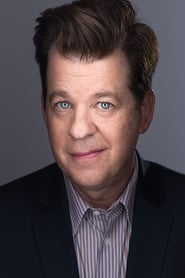 NameSteve WittingCharacterDr. James Shoun
NameSteve WittingCharacterDr. James Shoun -
 NameSteve RoutmanCharacterDr. David Shoun
NameSteve RoutmanCharacterDr. David Shoun -
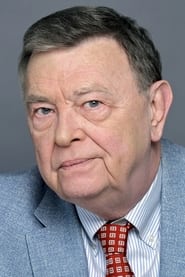 NameGene JonesCharacterPitts Beatty
NameGene JonesCharacterPitts Beatty -
 NameMichael Abbott Jr.CharacterAgent Frank Smith
NameMichael Abbott Jr.CharacterAgent Frank Smith -
 NameJ.C. MacKenzieCharacterRadio Announcer
NameJ.C. MacKenzieCharacterRadio Announcer -
 NameJack WhiteCharacterRadio Show Actor
NameJack WhiteCharacterRadio Show Actor -
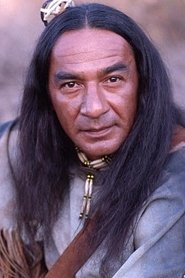 NameLarry SellersCharacterNon-Hon-Zhin-Ga
NameLarry SellersCharacterNon-Hon-Zhin-Ga -
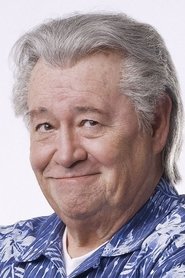 NameBarry CorbinCharacterUndertaker Turton
NameBarry CorbinCharacterUndertaker Turton -
 NameGabriel CasdorphCharacterAgent Joe Jones
NameGabriel CasdorphCharacterAgent Joe Jones -
 NameWally WelchCharacterBob Mount
NameWally WelchCharacterBob Mount -
 NameJames Roman Dailey Jr.CharacterBaby Namer
NameJames Roman Dailey Jr.CharacterBaby Namer -
 NameChristopher CoteCharacterBaby Namer (for Anna)
NameChristopher CoteCharacterBaby Namer (for Anna) -
 NameRandy HouserCharacterScott Mathis
NameRandy HouserCharacterScott Mathis -
 NameMoe HeadrickCharacterSheriff Freas
NameMoe HeadrickCharacterSheriff Freas -
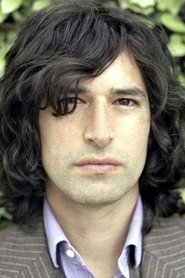 NamePete YornCharacterAcie Kirby
NamePete YornCharacterAcie Kirby -
 NameMargaret Shannon-SiskCharacterWife of Pipe Keeper / Wailing Relative
NameMargaret Shannon-SiskCharacterWife of Pipe Keeper / Wailing Relative -
 NameMoira RedcornCharacterPrologue Wailer
NameMoira RedcornCharacterPrologue Wailer -
 NameChase ParkerCharacterOsage at Oil Discovery / Fairfax Explosion Responder
NameChase ParkerCharacterOsage at Oil Discovery / Fairfax Explosion Responder -
 NameJarad LooperCharacterOsage at Oil Discovery
NameJarad LooperCharacterOsage at Oil Discovery -
 NameJohn GibbsCharacterOsage at Oil Discovery
NameJohn GibbsCharacterOsage at Oil Discovery -
 NameJerry LogsdonCharacterOsage at Oil Discovery
NameJerry LogsdonCharacterOsage at Oil Discovery -
 NameJacob LuxCharacterOsage at Oil Discovery
NameJacob LuxCharacterOsage at Oil Discovery -
 NameXavier ToehayCharacterOsage at oil Discovery
NameXavier ToehayCharacterOsage at oil Discovery -
 NameMike CookCharacterHawker at Train
NameMike CookCharacterHawker at Train -
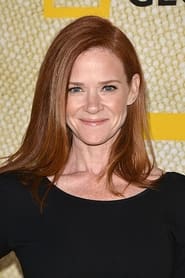 NameKatherine WillisCharacterMyrtie Hale
NameKatherine WillisCharacterMyrtie Hale -
 NameDelani ChambersCharacterWillie Hale
NameDelani ChambersCharacterWillie Hale -
 NameZachary HokeahCharacterOsage Dying from Poison
NameZachary HokeahCharacterOsage Dying from Poison -
 NameTalon SatepauhoodleCharacterJohn Whitehair
NameTalon SatepauhoodleCharacterJohn Whitehair -
 NameChance RushCharacterBill Stepson
NameChance RushCharacterBill Stepson -
 NameDana DaylightCharacterAnna Sanford
NameDana DaylightCharacterAnna Sanford -
 NameMahada SandersCharacterRose Lewis
NameMahada SandersCharacterRose Lewis -
 NameJennifer RaderCharacterSara Butler
NameJennifer RaderCharacterSara Butler -
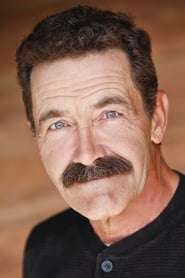 NameBen HallCharacterSara's Murderer
NameBen HallCharacterSara's Murderer -
 NameJohn Q. WilsonCharacterBank Clerk
NameJohn Q. WilsonCharacterBank Clerk -
 NameBeau SmithCharacterPhotos Hustler #1
NameBeau SmithCharacterPhotos Hustler #1 -
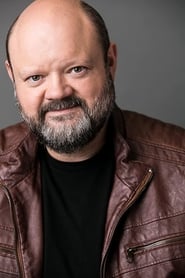 NameVictor McCayCharacterPhotos Hustler #2
NameVictor McCayCharacterPhotos Hustler #2 -
 NameNathalie StandingcloudCharacterRoan Girlfriend
NameNathalie StandingcloudCharacterRoan Girlfriend -
 NameJay PaulsonCharacterCar Salesman
NameJay PaulsonCharacterCar Salesman -
 NameMarvin E. Stepson Jr.CharacterOsage Family Buying Car
NameMarvin E. Stepson Jr.CharacterOsage Family Buying Car -
 NameTracey Ann MooreCharacterOsage Family Buying Car
NameTracey Ann MooreCharacterOsage Family Buying Car -
 NameEaston Wade YellowfishCharacterOsage Family Buying Car
NameEaston Wade YellowfishCharacterOsage Family Buying Car -
 NameReignen YellowfishCharacterOsage Family Buying Car
NameReignen YellowfishCharacterOsage Family Buying Car -
 NameCandice CostelloCharacterCatherine Cole
NameCandice CostelloCharacterCatherine Cole -
 NameFather Chris DaigleCharacterCatholic Priest
NameFather Chris DaigleCharacterCatholic Priest -
 NameJerry WolfCharacterFred Denoya (Robbed)
NameJerry WolfCharacterFred Denoya (Robbed) -
 NameAddie RoanhorseCharacterMrs. DeNoya (Robbed)
NameAddie RoanhorseCharacterMrs. DeNoya (Robbed) -
 NameJustin FranceCharacterCard Player
NameJustin FranceCharacterCard Player -
 NameErica Pretty Eagle MooreCharacterBaby Naming #1 Mother / Bridesmaid
NameErica Pretty Eagle MooreCharacterBaby Naming #1 Mother / Bridesmaid -
 NameMason CunninghamCharacterBaby Naming Father
NameMason CunninghamCharacterBaby Naming Father -
 NameNorma JeanCharacterVera (Mollie's Housekeeper)
NameNorma JeanCharacterVera (Mollie's Housekeeper) -
 NameElisha PrattCharacterJoseph Bigheart
NameElisha PrattCharacterJoseph Bigheart -
 NameDesireee Storm BraveCharacterBertha Bigheart
NameDesireee Storm BraveCharacterBertha Bigheart -
 NameMargaret GrayCharacterGrace Bigheart
NameMargaret GrayCharacterGrace Bigheart -
 NameChristopher HillCharacterJohn Bigheart
NameChristopher HillCharacterJohn Bigheart -
 NameDolan WilsonCharacterJustice of the Peace
NameDolan WilsonCharacterJustice of the Peace -
 NameJackie WyattCharacterWedding Photographer
NameJackie WyattCharacterWedding Photographer -
 NameRayna GellertCharacterWedding Band Lead Fiddle
NameRayna GellertCharacterWedding Band Lead Fiddle -
 NameNokosee FieldsCharacterWedding Band
NameNokosee FieldsCharacterWedding Band -
 NameKieran KaneCharacterWedding Band
NameKieran KaneCharacterWedding Band -
 NameLucas RossCharacterWedding Band
NameLucas RossCharacterWedding Band -
 NameElijah Cemp RagsdaleCharacterWedding Band
NameElijah Cemp RagsdaleCharacterWedding Band -
 NameVanessa Rose PhamCharacterElizabeth Burkhart (Baby)
NameVanessa Rose PhamCharacterElizabeth Burkhart (Baby) -
 NameTerry AllenCharacterUncle Jim
NameTerry AllenCharacterUncle Jim -
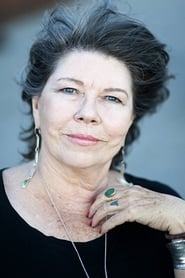 NameJo Harvey AllenCharacterAunt Annie
NameJo Harvey AllenCharacterAunt Annie -
 NameSarah SpurgerCharacterMartha (Nanny)
NameSarah SpurgerCharacterMartha (Nanny) -
 NameJoshua CloseCharacterHorace Burkhart
NameJoshua CloseCharacterHorace Burkhart -
 NameElden HensonCharacterDuke Burkhart
NameElden HensonCharacterDuke Burkhart -
 NameKinsleigh McNacCharacterElizabeth Burkhart (2-3 years)
NameKinsleigh McNacCharacterElizabeth Burkhart (2-3 years) -
 NameRoanin DavisCharacterCowboy Burkhart (Baby)
NameRoanin DavisCharacterCowboy Burkhart (Baby) -
 NameDavid FieldsCharacterBob the Cab Driver
NameDavid FieldsCharacterBob the Cab Driver -
 NameAnthony J. HarveyCharacterCharlie Whitehorn
NameAnthony J. HarveyCharacterCharlie Whitehorn -
 NameStephen BerkmanCharacterStudio Photographer
NameStephen BerkmanCharacterStudio Photographer -
 NameJoseph SpinelliCharacterFriendly Joe
NameJoseph SpinelliCharacterFriendly Joe -
 NameWilliam Alyn HillCharacterStudio Vagrant #1
NameWilliam Alyn HillCharacterStudio Vagrant #1 -
 NameBlaine HallCharacterStudio Vagrant #2
NameBlaine HallCharacterStudio Vagrant #2 -
 NameBrent LangdonCharacterBarney McBride
NameBrent LangdonCharacterBarney McBride -
 NameLeland PraterCharacterRex Theater Manager
NameLeland PraterCharacterRex Theater Manager -
 NameDJ WhitedCharacterCave Outlaw
NameDJ WhitedCharacterCave Outlaw -
 NameElizabeth WallerCharacterElizabeth Burkhart (3-5 years)
NameElizabeth WallerCharacterElizabeth Burkhart (3-5 years) -
 NameJessica HarjoCharacterPearl (Henry's Girlfriend)
NameJessica HarjoCharacterPearl (Henry's Girlfriend) -
 NameJoey OglesbyCharacterRoy Bunch
NameJoey OglesbyCharacterRoy Bunch -
 NameAlexis AnnCharacterMary Roan
NameAlexis AnnCharacterMary Roan -
 NameGary S. PrattCharacterBank Manager
NameGary S. PrattCharacterBank Manager -
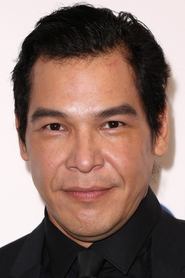 NameNathaniel ArcandCharacterAncestor Warrior
NameNathaniel ArcandCharacterAncestor Warrior -
 NameLee EddyCharacterMrs. Mackie
NameLee EddyCharacterMrs. Mackie -
 NameKristin KeithCharacterSpeakeasy Prostitute
NameKristin KeithCharacterSpeakeasy Prostitute -
 NameBravery NowlinCharacterCowboy (2-3 years)
NameBravery NowlinCharacterCowboy (2-3 years) -
 NameEdward Gray Sr.CharacterFleeing Osage Family
NameEdward Gray Sr.CharacterFleeing Osage Family -
 NameAngela PrattCharacterFleeing Osage Family
NameAngela PrattCharacterFleeing Osage Family -
 NameHenry Amos GrayCharacterFleeing Osage Family
NameHenry Amos GrayCharacterFleeing Osage Family -
 NameSamuel GrayCharacterFleeing Osage Family
NameSamuel GrayCharacterFleeing Osage Family -
 NameEdward Gray Jr.CharacterFleeing Osage Family
NameEdward Gray Jr.CharacterFleeing Osage Family -
 NameMamie CozadCharacterBaby Anna (at naming)
NameMamie CozadCharacterBaby Anna (at naming) -
 NameShonagh SmithCharacterNettie Berkshire
NameShonagh SmithCharacterNettie Berkshire -
 NameJoel Tallchief LemonCharacterFairfax Explosion Responder
NameJoel Tallchief LemonCharacterFairfax Explosion Responder -
 NameRichard Lookout RulingHisSunCharacterFairfax Explosion Responder
NameRichard Lookout RulingHisSunCharacterFairfax Explosion Responder -
 NameBrett BowerCharacterFairfax Explosion Responder
NameBrett BowerCharacterFairfax Explosion Responder -
 NameGarrison PanzerCharacterRodeo Announcer
NameGarrison PanzerCharacterRodeo Announcer -
 NameRiver RhoadesCharacterCowboy (4-5 years)
NameRiver RhoadesCharacterCowboy (4-5 years) -
 NameZack T. MorrisCharacterOsage Delegation Member
NameZack T. MorrisCharacterOsage Delegation Member -
 NameHarrison ShackelfordCharacterOsage Delegation Member
NameHarrison ShackelfordCharacterOsage Delegation Member -
 NameAlexis WallerCharacterElizabeth Burkhart (5-6 years)
NameAlexis WallerCharacterElizabeth Burkhart (5-6 years) -
 NameMark Landon SmithCharacterPresident Coolidge
NameMark Landon SmithCharacterPresident Coolidge -
 NameTom AshmoreCharacterTribal Council Interpreter
NameTom AshmoreCharacterTribal Council Interpreter -
 NameMyron F. Red EagleCharacterOsage Man Town Dance
NameMyron F. Red EagleCharacterOsage Man Town Dance -
 NameDolores Marie GoodeagleCharacterOsage Woman Town Dance
NameDolores Marie GoodeagleCharacterOsage Woman Town Dance -
 NameMatt TolentinoCharacterTown Dance Band
NameMatt TolentinoCharacterTown Dance Band -
 NameJohnny BaierCharacterTown Dance Band
NameJohnny BaierCharacterTown Dance Band -
 NameGregory FallisCharacterTown Dance Band
NameGregory FallisCharacterTown Dance Band -
 NamePatrick BubertCharacterTown Dance Band
NamePatrick BubertCharacterTown Dance Band -
 NameTJ MullerCharacterTown Dance Band
NameTJ MullerCharacterTown Dance Band -
 NameWill Reardon-AndersonCharacterTown Dance Band
NameWill Reardon-AndersonCharacterTown Dance Band -
 NamePeter Reardon-AndersonCharacterTown Dance Band
NamePeter Reardon-AndersonCharacterTown Dance Band -
 NameKyle DillinghamCharacterTown Dance Band
NameKyle DillinghamCharacterTown Dance Band -
 NameJacob JohnsonCharacterTown Dance Band
NameJacob JohnsonCharacterTown Dance Band -
 NameJeffrey StevensonCharacterTown Dance Band
NameJeffrey StevensonCharacterTown Dance Band -
 NameClint RohrCharacterTown Dance Band
NameClint RohrCharacterTown Dance Band -
 NameD. Reride SmithCharacterHale's Ranch Hand
NameD. Reride SmithCharacterHale's Ranch Hand -
 NameSamuel FrenchCharacterAgent CJ Robinson
NameSamuel FrenchCharacterAgent CJ Robinson -
 NameJames Healy Jr.Character2nd Insurance Man
NameJames Healy Jr.Character2nd Insurance Man -
 NameJeremy GoodvoiceCharacterPony Watching Man
NameJeremy GoodvoiceCharacterPony Watching Man -
 NameRon McMahanCharacterOld Timer
NameRon McMahanCharacterOld Timer -
 NameSeth BuckminsterCharacterBarber
NameSeth BuckminsterCharacterBarber -
 NamePenny PottsCharacterBallet Instructor
NamePenny PottsCharacterBallet Instructor -
 NameMelissa TigerCharacterPony Watching Woman
NameMelissa TigerCharacterPony Watching Woman -
 NameKaren GarlitzCharacterTillie Stepson
NameKaren GarlitzCharacterTillie Stepson -
 NameBronson RedeagleCharacterTillie's Son
NameBronson RedeagleCharacterTillie's Son -
 NameJenny Paige LynnCharacterTillie's Daughter
NameJenny Paige LynnCharacterTillie's Daughter -
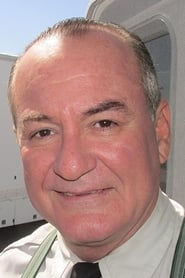 NameDavid BornCharacterKelsie's Lawyer
NameDavid BornCharacterKelsie's Lawyer -
 NameMary BussCharacterJohn Ramsey's Wife
NameMary BussCharacterJohn Ramsey's Wife -
 NameTed WelchCharacterReporter #1
NameTed WelchCharacterReporter #1 -
 NameCarl PalmerCharacterReporter #2
NameCarl PalmerCharacterReporter #2 -
 NameTanner BrantleyCharacterMarshall Gunman
NameTanner BrantleyCharacterMarshall Gunman -
 NameJezy GrayCharacterHale's Secretary
NameJezy GrayCharacterHale's Secretary -
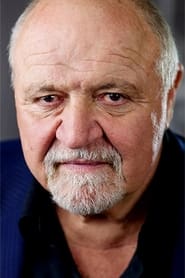 NameSteve EastinCharacterJudge John C. Pollock
NameSteve EastinCharacterJudge John C. Pollock -
 NameJoe ChrestCharacterLawyer Freeling
NameJoe ChrestCharacterLawyer Freeling -
 NameBrian ShoopCharacterMr. Kraceon
NameBrian ShoopCharacterMr. Kraceon -
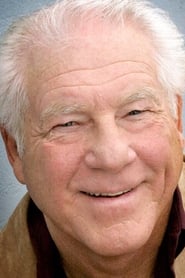 NameJames CarrollCharacterMr. Solowey
NameJames CarrollCharacterMr. Solowey -
 NameLux Britni MalaskeCharacterBaby Anna (2 years)
NameLux Britni MalaskeCharacterBaby Anna (2 years) -
 NameAdam WashingtonCharacterAcolyte
NameAdam WashingtonCharacterAcolyte -
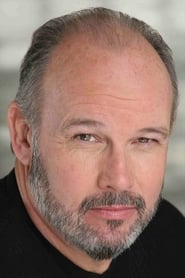 NameLarry Jack DotsonCharacterJailer
NameLarry Jack DotsonCharacterJailer -
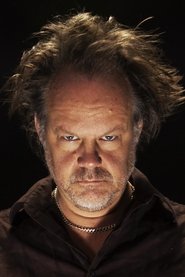 NameLarry FessendenCharacterRadio Voice (for Hale)
NameLarry FessendenCharacterRadio Voice (for Hale) -
 NameWelker WhiteCharacterRadio Voice (Hale's Relative)
NameWelker WhiteCharacterRadio Voice (Hale's Relative) -
 NameMartin ScorseseCharacterRadio Show Producer
NameMartin ScorseseCharacterRadio Show Producer -
 NameMarko CostanzoCharacterRadio Sound Effects
NameMarko CostanzoCharacterRadio Sound Effects -
 NameNicholas WhiteCharacterRadio Sound Effects
NameNicholas WhiteCharacterRadio Sound Effects -
 NameRob FisherCharacterRadio Show Conductor
NameRob FisherCharacterRadio Show Conductor -
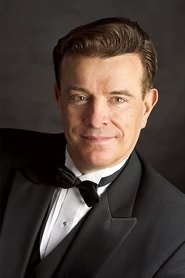 NameVince GiordanoCharacterRadio Show Band Leader
NameVince GiordanoCharacterRadio Show Band Leader -
 NamePaul WoodielCharacterRadio Show Orchestra
NamePaul WoodielCharacterRadio Show Orchestra -
 NameAndy SteinCharacterRadio Show Orchestra
NameAndy SteinCharacterRadio Show Orchestra -
 NameSam BardfeldCharacterRadio Show Orchestra
NameSam BardfeldCharacterRadio Show Orchestra -
 NameJoe BogaCharacterRadio Show Orchestra
NameJoe BogaCharacterRadio Show Orchestra -
 NameJon-Erik KellsoCharacterRadio Show Orchestra
NameJon-Erik KellsoCharacterRadio Show Orchestra -
 NameJim FryerCharacterRadio Show Orchestra
NameJim FryerCharacterRadio Show Orchestra -
 NameMarc PhaneufCharacterRadio Show Orchestra
NameMarc PhaneufCharacterRadio Show Orchestra -
 NameMark LopemanCharacterRadio Show Orchestra
NameMark LopemanCharacterRadio Show Orchestra -
 NameChris ByarsCharacterRadio Show Orchestra
NameChris ByarsCharacterRadio Show Orchestra -
 NameVinny RanioloCharacterRadio Show Orchestra
NameVinny RanioloCharacterRadio Show Orchestra -
 NamePaul WellsCharacterRadio Show Orchestra
NamePaul WellsCharacterRadio Show Orchestra -
 NamePeter YarinCharacterRadio Show Orchestra
NamePeter YarinCharacterRadio Show Orchestra -
 NameScott GeorgeCharacterEnd Celebration Osage Head Singer
NameScott GeorgeCharacterEnd Celebration Osage Head Singer -
 NameKenneth Bighorse Jr.CharacterEnd Celebration Osage Head Singer
NameKenneth Bighorse Jr.CharacterEnd Celebration Osage Head Singer -
 NameVann BighorseCharacterEnd Celebration Osage Head Singer
NameVann BighorseCharacterEnd Celebration Osage Head Singer -
 NameAnna L. BighorseCharacterEnd Celebration Osage Singer
NameAnna L. BighorseCharacterEnd Celebration Osage Singer -
 NameMason BighorseCharacterEnd Celebration Osage Singer
NameMason BighorseCharacterEnd Celebration Osage Singer -
 NameNorris BighorseCharacterEnd Celebration Osage Singer
NameNorris BighorseCharacterEnd Celebration Osage Singer -
 NameScott BighorseCharacterEnd Celebration Osage Singer
NameScott BighorseCharacterEnd Celebration Osage Singer -
 NamePaul BighorseCharacterEnd Celebration Osage Singer
NamePaul BighorseCharacterEnd Celebration Osage Singer -
 NameTaveah Ann GeorgeCharacterEnd Celebration Osage Singer
NameTaveah Ann GeorgeCharacterEnd Celebration Osage Singer -
 NameWahwastoas J. JonesCharacterEnd Celebration Osage Singer
NameWahwastoas J. JonesCharacterEnd Celebration Osage Singer -
 NameDobbin Monoessy KnifechiefCharacterEnd Celebration Osage Singer
NameDobbin Monoessy KnifechiefCharacterEnd Celebration Osage Singer -
 NameJulia LookoutCharacterEnd Celebration Osage Singer
NameJulia LookoutCharacterEnd Celebration Osage Singer -
 NameJennifer MosesCharacterEnd Celebration Osage Singer
NameJennifer MosesCharacterEnd Celebration Osage Singer -
 NameFrancis Pipestem Jr.CharacterEnd Celebration Osage Singer
NameFrancis Pipestem Jr.CharacterEnd Celebration Osage Singer -
 NameMichael Paul PahsetopahCharacterEnd Celebration Osage Singer
NameMichael Paul PahsetopahCharacterEnd Celebration Osage Singer -
 NameSilas SatepauhoodleCharacterEnd Celebration Osage Singer
NameSilas SatepauhoodleCharacterEnd Celebration Osage Singer -
 NameCherylyn Oberly SatepauhoodleCharacterEnd Celebration Osage Singer
NameCherylyn Oberly SatepauhoodleCharacterEnd Celebration Osage Singer -
 NameCharisse SatepauhoodleCharacterEnd Celebration Osage Singer
NameCharisse SatepauhoodleCharacterEnd Celebration Osage Singer -
 NameLynette SatepauhoodleCharacterEnd Celebration Osage Singer
NameLynette SatepauhoodleCharacterEnd Celebration Osage Singer -
 NameJohn ShawCharacterEnd Celebration Osage Singer
NameJohn ShawCharacterEnd Celebration Osage Singer -
 NameAngela Toineeta SatepauhoodleCharacterEnd Celebration Osage Singer
NameAngela Toineeta SatepauhoodleCharacterEnd Celebration Osage Singer -
 NameAlexandria ToineetaCharacterEnd Celebration Osage Singer
NameAlexandria ToineetaCharacterEnd Celebration Osage Singer -
 NameEd YellowfishCharacterEnd Celebration Osage Singer
NameEd YellowfishCharacterEnd Celebration Osage Singer -
 NameDanny FrostCharacterBusinessman (uncredited)
NameDanny FrostCharacterBusinessman (uncredited) -
 NameEric ParkinsonCharacterDeputy Marshal (uncredited)
NameEric ParkinsonCharacterDeputy Marshal (uncredited) -
 NameCraig 'Radio Man' CastaldoCharacterRadio Man (uncredited)
NameCraig 'Radio Man' CastaldoCharacterRadio Man (uncredited)
-
 NameMartin ScorseseJobDirector
NameMartin ScorseseJobDirector -
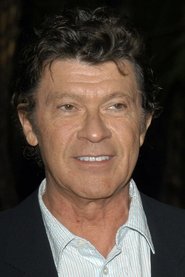 NameRobbie RobertsonJobOriginal Music Composer
NameRobbie RobertsonJobOriginal Music Composer -
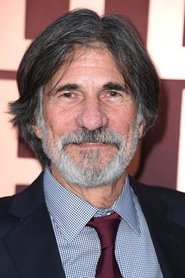 NameJack FiskJobProduction Design
NameJack FiskJobProduction Design -
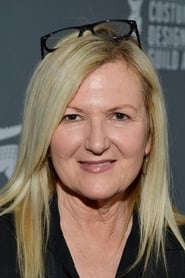 NameJacqueline WestJobCostume Designer
NameJacqueline WestJobCostume Designer -
 NameAdam WillisJobSet Decoration
NameAdam WillisJobSet Decoration -
 NameMatt PrueittJobGrip
NameMatt PrueittJobGrip -
 NameStephen OhJobCamera Operator
NameStephen OhJobCamera Operator -
 NameDavid ConnanJobGrip
NameDavid ConnanJobGrip -
 NameBlake BennettJobGrip
NameBlake BennettJobGrip -
 NameJosh ElamJobGrip
NameJosh ElamJobGrip -
 NameNathan M. SchindlerJobGrip
NameNathan M. SchindlerJobGrip -
 NameKrystina FiggJobGrip
NameKrystina FiggJobGrip -
 NameChad BennettJobGrip
NameChad BennettJobGrip -
 NameKate SpranceJobCasting Associate
NameKate SpranceJobCasting Associate -
 NameJacob AlvarezJobGrip
NameJacob AlvarezJobGrip -
 NameBeau BrandJobGrip
NameBeau BrandJobGrip -
 NameElise BuedelJobCasting Associate
NameElise BuedelJobCasting Associate -
 NameBeate PetruccelliJobKey Makeup Artist
NameBeate PetruccelliJobKey Makeup Artist -
 NameHeather BensonJobMakeup Artist
NameHeather BensonJobMakeup Artist -
 NameLandon LottJobArt Direction
NameLandon LottJobArt Direction -
 NameThomas NellenJobMakeup Department Head
NameThomas NellenJobMakeup Department Head -
 NameMatthew GatlinJobSupervising Art Director
NameMatthew GatlinJobSupervising Art Director -
 NameChristopher FergusonJobLighting Programmer
NameChristopher FergusonJobLighting Programmer -
 NameNiels JuulJobExecutive Producer
NameNiels JuulJobExecutive Producer -
 NameMarianne BowerJobResearcher
NameMarianne BowerJobResearcher -
 NameAlonso VelascoJobSound Assistant
NameAlonso VelascoJobSound Assistant -
 NameEllen KurasJobSecond Unit Director
NameEllen KurasJobSecond Unit Director -
 NameYvan LucasJobDigital Intermediate Colorist
NameYvan LucasJobDigital Intermediate Colorist -
 NameTom KlaneJobDailies Technician
NameTom KlaneJobDailies Technician -
 NameMartin ScorseseJobScreenplay
NameMartin ScorseseJobScreenplay -
 NameKeyhan BayeganJobDailies Technician
NameKeyhan BayeganJobDailies Technician -
 NameJack TashdjianJobDailies Operator
NameJack TashdjianJobDailies Operator -
 NameJennifer HaireJobProduction Supervisor
NameJennifer HaireJobProduction Supervisor -
 NameMatthew CavalieroJobProperty Master
NameMatthew CavalieroJobProperty Master -
 NameKenneth KohJobVFX Artist
NameKenneth KohJobVFX Artist -
 NameMoses JenkinsJobAdditional Grip
NameMoses JenkinsJobAdditional Grip -
 NameLanard AtkinsJobContact Lens Technician
NameLanard AtkinsJobContact Lens Technician -
 NameAndrea De LeonJobAdditional Hairstylist
NameAndrea De LeonJobAdditional Hairstylist -
 NameLaura CaseyJobAssistant Makeup Artist
NameLaura CaseyJobAssistant Makeup Artist -
 NameDuncan JarmanJobProsthetics Sculptor
NameDuncan JarmanJobProsthetics Sculptor -
 NameBrooke O'Neal WilsonJobCostumer
NameBrooke O'Neal WilsonJobCostumer -
 NameJason Blaise CunninghamJobKey Rigging Grip
NameJason Blaise CunninghamJobKey Rigging Grip -
 NameJameson EatonJobKey Hair Stylist
NameJameson EatonJobKey Hair Stylist -
 NameJill BeecherJobConceptual Illustrator
NameJill BeecherJobConceptual Illustrator -
 NameBruce DiValerioJobConstruction Coordinator
NameBruce DiValerioJobConstruction Coordinator -
 NameLuca NemolatoJobConcept Artist
NameLuca NemolatoJobConcept Artist -
 NameRyan BassoJobElectrician
NameRyan BassoJobElectrician -
 NameMelinda DunnJobAssistant Hairstylist
NameMelinda DunnJobAssistant Hairstylist -
 NameNuekellar HardyJobAdditional Second Assistant Director
NameNuekellar HardyJobAdditional Second Assistant Director -
 NameCarole ZacekJobCostumer
NameCarole ZacekJobCostumer -
 NameRichard RedlefsenJobProsthetic Makeup Artist
NameRichard RedlefsenJobProsthetic Makeup Artist -
 NameGranger CoatsJobGreensman
NameGranger CoatsJobGreensman -
 NameApril YandaJobCostumer
NameApril YandaJobCostumer -
 NameMonica Ruiz-ZieglerJobCostumer
NameMonica Ruiz-ZieglerJobCostumer -
 NameStephen SzotJobDrone Pilot
NameStephen SzotJobDrone Pilot -
 NameElisa AcevedoJobAdditional Hairstylist
NameElisa AcevedoJobAdditional Hairstylist -
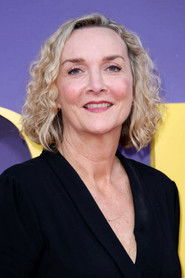 NameSian GriggJobMakeup Designer
NameSian GriggJobMakeup Designer -
 NameCorey SklovJobProduction Supervisor
NameCorey SklovJobProduction Supervisor -
 NameKit ConnersJobAdditional Second Assistant Director
NameKit ConnersJobAdditional Second Assistant Director -
 NameZedrick Hamblin DiMennoJobSet Decorating Coordinator
NameZedrick Hamblin DiMennoJobSet Decorating Coordinator -
 NameDaniel LupiJobUnit Production Manager
NameDaniel LupiJobUnit Production Manager -
 NameAaron BracettyJobLighting Technician
NameAaron BracettyJobLighting Technician -
 NameKyle SkillinJobAdditional Hairstylist
NameKyle SkillinJobAdditional Hairstylist -
 NameBrian BarlettaniJobVisual Effects Producer
NameBrian BarlettaniJobVisual Effects Producer -
 NameKathryn BlondellJobHairstylist
NameKathryn BlondellJobHairstylist -
 NameKelley CribbenJobPost Production Supervisor
NameKelley CribbenJobPost Production Supervisor -
 NameDaniel Castle KingJobProduction Supervisor
NameDaniel Castle KingJobProduction Supervisor -
 NameCarl CountsJobArt Department Coordinator
NameCarl CountsJobArt Department Coordinator -
 NameTimothy A. WonsikJobAssistant Costume Designer
NameTimothy A. WonsikJobAssistant Costume Designer -
 NameSommer RusinskiJobCostumer
NameSommer RusinskiJobCostumer -
 NameTracey AndersonJobMakeup Artist
NameTracey AndersonJobMakeup Artist -
 NameShea KammerJobUnit Production Manager
NameShea KammerJobUnit Production Manager -
 NameRon TerrellJobStand In
NameRon TerrellJobStand In -
 NameEmma CronlyJobMusician
NameEmma CronlyJobMusician -
 NameSteve GenewickJobSound Engineer
NameSteve GenewickJobSound Engineer -
 NameDerek WooldridgeJobStand In
NameDerek WooldridgeJobStand In -
 NameMeghan CurrierJobMusic Coordinator
NameMeghan CurrierJobMusic Coordinator -
 NameJC ChiamJobSound Engineer
NameJC ChiamJobSound Engineer -
 NameJoe ZimmermanJobTranscriptions
NameJoe ZimmermanJobTranscriptions -
 NameViolet GotsisJobProduction Assistant
NameViolet GotsisJobProduction Assistant -
 NameDaniel GoldJobTranscriptions
NameDaniel GoldJobTranscriptions -
 NameTroy CaballeroJobScript Consultant
NameTroy CaballeroJobScript Consultant -
 NameGeorge DoeringJobMusician
NameGeorge DoeringJobMusician -
 NameBrooke SatrazemisJobScript Supervisor
NameBrooke SatrazemisJobScript Supervisor -
 NameJessica LichtnerJobScript Supervisor
NameJessica LichtnerJobScript Supervisor -
 NameKarl WingateJobSound Engineer
NameKarl WingateJobSound Engineer -
 NameAaron J. BrooksJobStand In
NameAaron J. BrooksJobStand In -
 NameRonnie JohnsonJobLighting Technician
NameRonnie JohnsonJobLighting Technician -
 NameTeresa LuzJobMakeup Artist
NameTeresa LuzJobMakeup Artist -
 NameAnita BrabecJobMakeup Artist
NameAnita BrabecJobMakeup Artist -
 NameRon MasonJobSet Designer
NameRon MasonJobSet Designer -
 NameJaved NoorullahJobSet Decoration Buyer
NameJaved NoorullahJobSet Decoration Buyer -
 NameTom FleischmanJobSound Re-Recording Mixer
NameTom FleischmanJobSound Re-Recording Mixer -
 NameGloria BelzJobMakeup Artist
NameGloria BelzJobMakeup Artist -
 NameElizabeth BeyJobMakeup Artist
NameElizabeth BeyJobMakeup Artist -
 NameBryan LaneJobSet Designer
NameBryan LaneJobSet Designer -
 NameDani Broom-PeltzJobSet Decoration Buyer
NameDani Broom-PeltzJobSet Decoration Buyer -
 NameBrian A. WaitsJobSet Designer
NameBrian A. WaitsJobSet Designer -
 NameLinda Boykin-WilliamsJobMakeup Artist
NameLinda Boykin-WilliamsJobMakeup Artist -
 NameVictor PongonisJobSet Dresser
NameVictor PongonisJobSet Dresser -
 NameLindsay GarrisonJobMakeup Artist
NameLindsay GarrisonJobMakeup Artist -
 NameSarah ForrestJobSet Designer
NameSarah ForrestJobSet Designer -
 NameJordan CrockettJobArt Direction
NameJordan CrockettJobArt Direction -
 NameSandy Jo JohnstonJobMakeup Artist
NameSandy Jo JohnstonJobMakeup Artist -
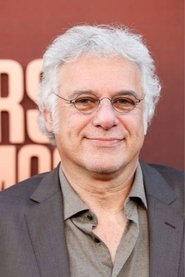 NamePablo HelmanJobVisual Effects Supervisor
NamePablo HelmanJobVisual Effects Supervisor -
 NameGary McMonniesJobAssistant Art Director
NameGary McMonniesJobAssistant Art Director -
 NameGina JavaheriJobCostume Supervisor
NameGina JavaheriJobCostume Supervisor -
 NameRoxy D'AlonzoJobMakeup Artist
NameRoxy D'AlonzoJobMakeup Artist -
 NameCheryl Beasley BlackwellJobCostume Supervisor
NameCheryl Beasley BlackwellJobCostume Supervisor -
 NameAndrew W. BofingerJobSet Decoration Buyer
NameAndrew W. BofingerJobSet Decoration Buyer -
 NameLisandro BoccacciJobProduction Assistant
NameLisandro BoccacciJobProduction Assistant -
 NameAlex AtkinsonJobStand In
NameAlex AtkinsonJobStand In -
 NameDavid GrannJobBook
NameDavid GrannJobBook -
 NameKris GiacomazziJobStunts
NameKris GiacomazziJobStunts -
 NameDavid Croley BroylesJobSet Production Assistant
NameDavid Croley BroylesJobSet Production Assistant -
 NameCarolina HernandezJobSet Costumer
NameCarolina HernandezJobSet Costumer -
 NameLia RobinJobMakeup Artist
NameLia RobinJobMakeup Artist -
 NameAlyssa Blair CawthonJobSet Costumer
NameAlyssa Blair CawthonJobSet Costumer -
 NameNacoma WhobreyJobMakeup Artist
NameNacoma WhobreyJobMakeup Artist -
 NameMartina KohlJobMakeup Artist
NameMartina KohlJobMakeup Artist -
 NamePhilip StocktonJobSupervising Sound Editor
NamePhilip StocktonJobSupervising Sound Editor -
 NameGilbert MontesJobSet Costumer
NameGilbert MontesJobSet Costumer -
 NameShane BallouJobSet Dresser
NameShane BallouJobSet Dresser -
 NameCarla WhiteJobMakeup Artist
NameCarla WhiteJobMakeup Artist -
 NameToni MarloJobMakeup Artist
NameToni MarloJobMakeup Artist -
 NameScott GeorgeJobSongs
NameScott GeorgeJobSongs -
 NameKay GeorgiouJobHair Department Head
NameKay GeorgiouJobHair Department Head -
 NameBrandon LouliasJobUtility Sound
NameBrandon LouliasJobUtility Sound -
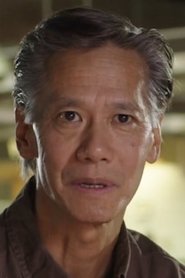 NameP. Scott SakamotoJob"A" Camera Operator
NameP. Scott SakamotoJob"A" Camera Operator -
 NameScott BrockJobAdditional Editor
NameScott BrockJobAdditional Editor -
 NameNick RonzioJobUtility Sound
NameNick RonzioJobUtility Sound -
 NameJohn WilliamsJobIn Memory Of
NameJohn WilliamsJobIn Memory Of -
 NameTim MonichJobDialect Coach
NameTim MonichJobDialect Coach -
 NameJohn PritchettJobProduction Sound Mixer
NameJohn PritchettJobProduction Sound Mixer -
 NameMeghan McClureJobSupervising Art Director
NameMeghan McClureJobSupervising Art Director -
 NamePatrushkha MierzwaJobUtility Sound
NamePatrushkha MierzwaJobUtility Sound -
 NameMichael DinerJobSupervising Art Director
NameMichael DinerJobSupervising Art Director -
 NameDavid M. RobertsJobBoom Operator
NameDavid M. RobertsJobBoom Operator -
 NameKelly DoranJobUtility Sound
NameKelly DoranJobUtility Sound -
 NameLarry KaplanJobUnit Publicist
NameLarry KaplanJobUnit Publicist -
 NameBenedict BaldauffJobSecond Assistant "B" Camera
NameBenedict BaldauffJobSecond Assistant "B" Camera -
 NameJ. Steven MatzingerJob"B" Camera Operator
NameJ. Steven MatzingerJob"B" Camera Operator -
 NameP. Scott SakamotoJobSteadicam Operator
NameP. Scott SakamotoJobSteadicam Operator -
 NameJohn HolmesJobFirst Assistant "B" Camera
NameJohn HolmesJobFirst Assistant "B" Camera -
 NameAndrew CataniaJobProduction Coordinator
NameAndrew CataniaJobProduction Coordinator -
 NameMelinda Sue GordonJobStill Photographer
NameMelinda Sue GordonJobStill Photographer -
 NameCierra MadisonJobSet Designer
NameCierra MadisonJobSet Designer -
 NameJonathan L'HeureuxJobSpecial Effects Technician
NameJonathan L'HeureuxJobSpecial Effects Technician -
 NameRed CharyszynJobFirst Assistant Editor
NameRed CharyszynJobFirst Assistant Editor -
 NameTrevor LoomisJobFirst Assistant "A" Camera
NameTrevor LoomisJobFirst Assistant "A" Camera -
 NameRobert AlidonJobSpecial Effects Technician
NameRobert AlidonJobSpecial Effects Technician -
 NameKieran L'HeureuxJobSpecial Effects Technician
NameKieran L'HeureuxJobSpecial Effects Technician -
 NameRoderic DuffJobSpecial Effects Technician
NameRoderic DuffJobSpecial Effects Technician -
 NameAnthony GreeneJobSpecial Effects Technician
NameAnthony GreeneJobSpecial Effects Technician -
 NameBailey NagyJobLoader
NameBailey NagyJobLoader -
 NameRj RankinJobSpecial Effects Technician
NameRj RankinJobSpecial Effects Technician -
 NameRed CharyszynJobVisual Effects Editor
NameRed CharyszynJobVisual Effects Editor -
 NameChris SloanJobSecond Assistant "A" Camera
NameChris SloanJobSecond Assistant "A" Camera -
 NameSpencer DavisonJobArt Direction
NameSpencer DavisonJobArt Direction -
 NameLandon LottJobAssistant Art Director
NameLandon LottJobAssistant Art Director -
 NameAddie RoanhorseJobAssistant Art Director
NameAddie RoanhorseJobAssistant Art Director -
 NameKaren TeneyckJobGraphic Designer
NameKaren TeneyckJobGraphic Designer -
 NameTony ZieglerJobLeadman
NameTony ZieglerJobLeadman -
 NameOlivia PeeblesJobAssistant Set Decoration
NameOlivia PeeblesJobAssistant Set Decoration -
 NameKrista PerryJobStunts
NameKrista PerryJobStunts -
 NameJennie SheaJobADR Recordist
NameJennie SheaJobADR Recordist -
 NameCharmaine BalcerzakJobHairstylist
NameCharmaine BalcerzakJobHairstylist -
 NameHeather HawkinsJobHairstylist
NameHeather HawkinsJobHairstylist -
 NameMarianne BowerJobExecutive Producer
NameMarianne BowerJobExecutive Producer -
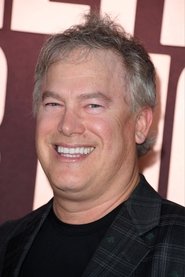 NameRick YornJobExecutive Producer
NameRick YornJobExecutive Producer -
 NameRene HaynesJobCasting
NameRene HaynesJobCasting -
 NameDrea CarrenoJobHairstylist
NameDrea CarrenoJobHairstylist -
 NameDaniel LupiJobProducer
NameDaniel LupiJobProducer -
 NameJ.C. DavisJobHairstylist
NameJ.C. DavisJobHairstylist -
 NameAdam SomnerJobExecutive Producer
NameAdam SomnerJobExecutive Producer -
 NameAnna MajewskiJobHairstylist
NameAnna MajewskiJobHairstylist -
 NameJon CarterJobHairstylist
NameJon CarterJobHairstylist -
 NameLisa FrechetteJobExecutive Producer
NameLisa FrechetteJobExecutive Producer -
 NameEllen LewisJobCasting
NameEllen LewisJobCasting -
 NameJennifer JaneJobHairstylist
NameJennifer JaneJobHairstylist -
 NameShea KammerJobExecutive Producer
NameShea KammerJobExecutive Producer -
 NameZoey BeltonJobHairstylist
NameZoey BeltonJobHairstylist -
 NameBobbie PayneJobHairstylist
NameBobbie PayneJobHairstylist -
 NameJosh LakatosJobStunts
NameJosh LakatosJobStunts -
 NameCandace OrlandiJobHairstylist
NameCandace OrlandiJobHairstylist -
 NameMark DeSimoneJobADR Mixer
NameMark DeSimoneJobADR Mixer -
 NameHiro YadaJobSpecial Effects Makeup Artist
NameHiro YadaJobSpecial Effects Makeup Artist -
 NameGeorge A. LaraJobFoley Mixer
NameGeorge A. LaraJobFoley Mixer -
 NameStephen A. PopeJobStunt Coordinator
NameStephen A. PopeJobStunt Coordinator -
 NameJosh VinyardJobStunts
NameJosh VinyardJobStunts -
 NameAnna WilliamsJobHairstylist
NameAnna WilliamsJobHairstylist -
 NameAdam SomnerJobFirst Assistant Director
NameAdam SomnerJobFirst Assistant Director -
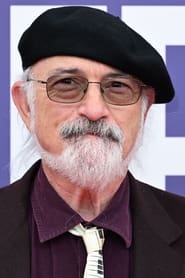 NameMark UlanoJobProduction Sound Mixer
NameMark UlanoJobProduction Sound Mixer -
 NameRegis HarringtonJobStunt Driver
NameRegis HarringtonJobStunt Driver -
 NameRyker SixkillerJobStunts
NameRyker SixkillerJobStunts -
 NameRichard BucherJobStunt Coordinator
NameRichard BucherJobStunt Coordinator -
 NameJerry PopolisJobHairstylist
NameJerry PopolisJobHairstylist -
 NameMarko CostanzoJobFoley Artist
NameMarko CostanzoJobFoley Artist -
 NameJa-Ann WangJobADR Mixer
NameJa-Ann WangJobADR Mixer -
 NameRichard BurdenJobStunt Driver
NameRichard BurdenJobStunt Driver -
 NameKC CoyJobStunts
NameKC CoyJobStunts -
 NameDominic PacittiJobSecond Second Assistant Director
NameDominic PacittiJobSecond Second Assistant Director -
 NameAshley Nicole HudsonJobStunts
NameAshley Nicole HudsonJobStunts -
 NameDoug ShamburgerJobBoom Operator
NameDoug ShamburgerJobBoom Operator -
 NameBrandon K. McLaughlinJobSpecial Effects Coordinator
NameBrandon K. McLaughlinJobSpecial Effects Coordinator -
 NameJeremy MarksJobSecond Assistant Director
NameJeremy MarksJobSecond Assistant Director -
 NameDarrell DavisJobStunts
NameDarrell DavisJobStunts -
 NameG.A. AguilarJobSecond Unit Director
NameG.A. AguilarJobSecond Unit Director -
 NameMichael MillerJobADR Mixer
NameMichael MillerJobADR Mixer -
 NamePamela BanksJobStunts
NamePamela BanksJobStunts -
 NameKent SheltonJobStunt Double
NameKent SheltonJobStunt Double -
 NameDawson ToweryJobStunts
NameDawson ToweryJobStunts -
 NameSteven VisscherJobFoley Editor
NameSteven VisscherJobFoley Editor -
 NameJustine BakerJobADR Mixer
NameJustine BakerJobADR Mixer -
 NameElliott ElseyJobADR Recordist
NameElliott ElseyJobADR Recordist -
 NameJim HenryJobStunts
NameJim HenryJobStunts -
 NameChad KnorrJobStunt Double
NameChad KnorrJobStunt Double -
 NameBrian MagrumJobADR Mixer
NameBrian MagrumJobADR Mixer -
 NameColin RogersJobADR Mixer
NameColin RogersJobADR Mixer -
 NameJeremy RalstinJobSpecial Effects Technician
NameJeremy RalstinJobSpecial Effects Technician -
 NameJulia StocktonJobDialogue Editor
NameJulia StocktonJobDialogue Editor -
 NameJon BielichJobStunts
NameJon BielichJobStunts -
 NameAaron MatthewsJobStunts
NameAaron MatthewsJobStunts -
 NameGreg WilliamsJobStand In
NameGreg WilliamsJobStand In -
 NameJanelle PerusiJobCostumer
NameJanelle PerusiJobCostumer -
 NameLeonardo DiCaprioJobExecutive Producer
NameLeonardo DiCaprioJobExecutive Producer -
 NameJohn AtwoodJobExecutive Producer
NameJohn AtwoodJobExecutive Producer -
 NameJustine ConteJobCo-Producer
NameJustine ConteJobCo-Producer -
 NameJustin KratzerJobPayroll Accountant
NameJustin KratzerJobPayroll Accountant -
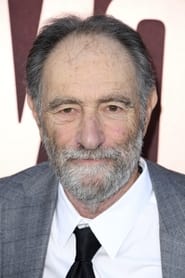 NameEric RothJobScreenplay
NameEric RothJobScreenplay -
 NameMartin ScorseseJobProducer
NameMartin ScorseseJobProducer -
 NameBradley ThomasJobProducer
NameBradley ThomasJobProducer -
 NameDan FriedkinJobProducer
NameDan FriedkinJobProducer -
 NameJohn MeloJobAnimal Wrangler
NameJohn MeloJobAnimal Wrangler -
 NameJohn MeloJobStunts
NameJohn MeloJobStunts -
 NameRodrigo PrietoJobDirector of Photography
NameRodrigo PrietoJobDirector of Photography -
 NameThelma SchoonmakerJobEditor
NameThelma SchoonmakerJobEditor -
 NameJason HamerJobSpecial Effects Makeup Artist
NameJason HamerJobSpecial Effects Makeup Artist -
 NameRobert FechtmanJobSet Designer
NameRobert FechtmanJobSet Designer -
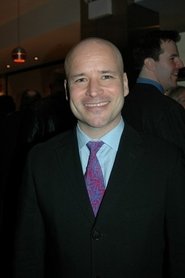 NameMichael ArnoldJobChoreographer
NameMichael ArnoldJobChoreographer -
 NameAndrew HudsonJobKey Production Assistant
NameAndrew HudsonJobKey Production Assistant -
 NameRobbie RobertsonJobIn Memory Of
NameRobbie RobertsonJobIn Memory Of -
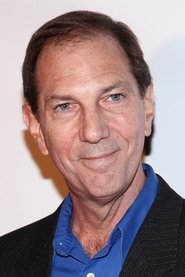 NameRandall BalsmeyerJobMain Title Designer
NameRandall BalsmeyerJobMain Title Designer -
 NameSean HappyJobStunts
NameSean HappyJobStunts -
 NameThomas E. BentleyJobStunts
NameThomas E. BentleyJobStunts -
 NameRussell SolbergJobStunts
NameRussell SolbergJobStunts -
 NameJoseph WinterbothamJobAssistant Sound Editor
NameJoseph WinterbothamJobAssistant Sound Editor -
 NameErin WillersJobProducer's Assistant
NameErin WillersJobProducer's Assistant -
 NameEliana WaxmanJobProduction Assistant
NameEliana WaxmanJobProduction Assistant -
 NameIan KincaidJobChief Lighting Technician
NameIan KincaidJobChief Lighting Technician -
 NameMichael FuchsJob"B" Camera Operator
NameMichael FuchsJob"B" Camera Operator
-
Trailer
-
Trailer
-
Trailer
-
Trailer
-
Trailer
-
Trailer
-
Trailer
-
Trailer
-
Trailer
-
Trailer
-
Trailer
-
Clip
-
Clip
-
Clip
-
Clip
-
Clip
-
Clip
-
Clip
-
Clip
-
Clip
-
Teaser
-
Teaser
-
Teaser
-
Teaser
-
Teaser
-
Teaser
-
Teaser
-
Teaser
-
Teaser
-
Teaser
-
Teaser
-
Teaser
-
Teaser
-
Teaser
-
Teaser
-
Teaser
-
Featurette
-
Featurette
-
Featurette
-
Featurette
-
Featurette
-
Featurette
-
Featurette
-
Featurette
-
Featurette
-
Featurette
-
Featurette
-
Featurette
-
Featurette
-
Featurette
-
Featurette
-
Featurette
-
Featurette


